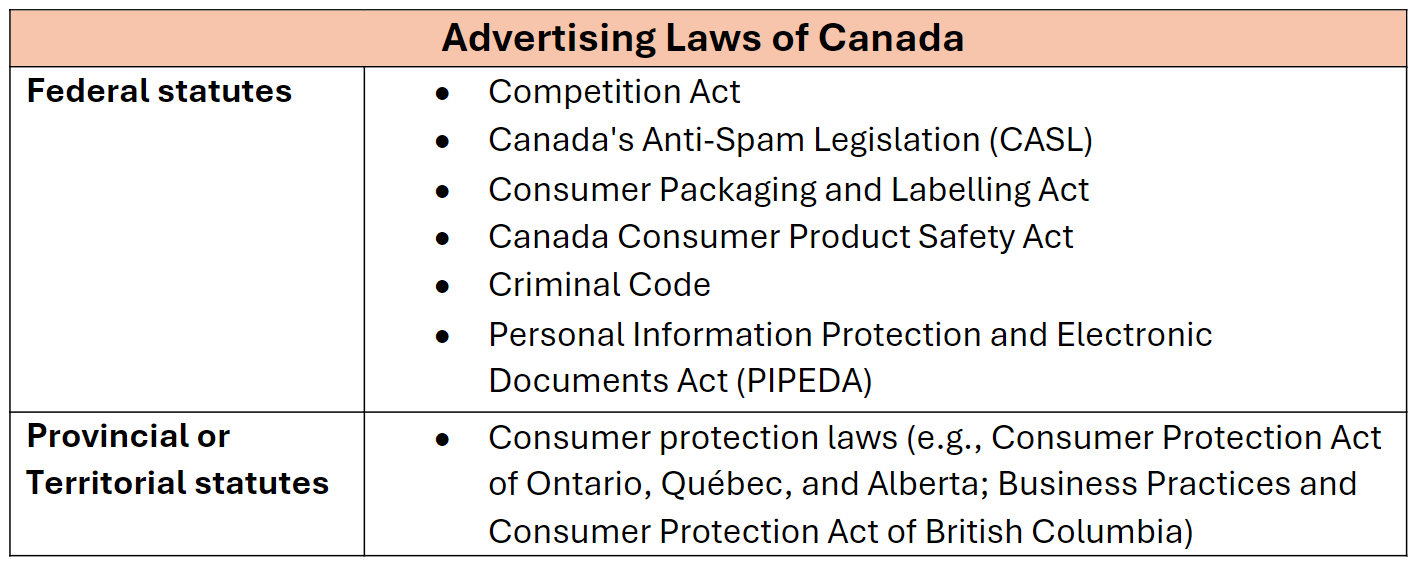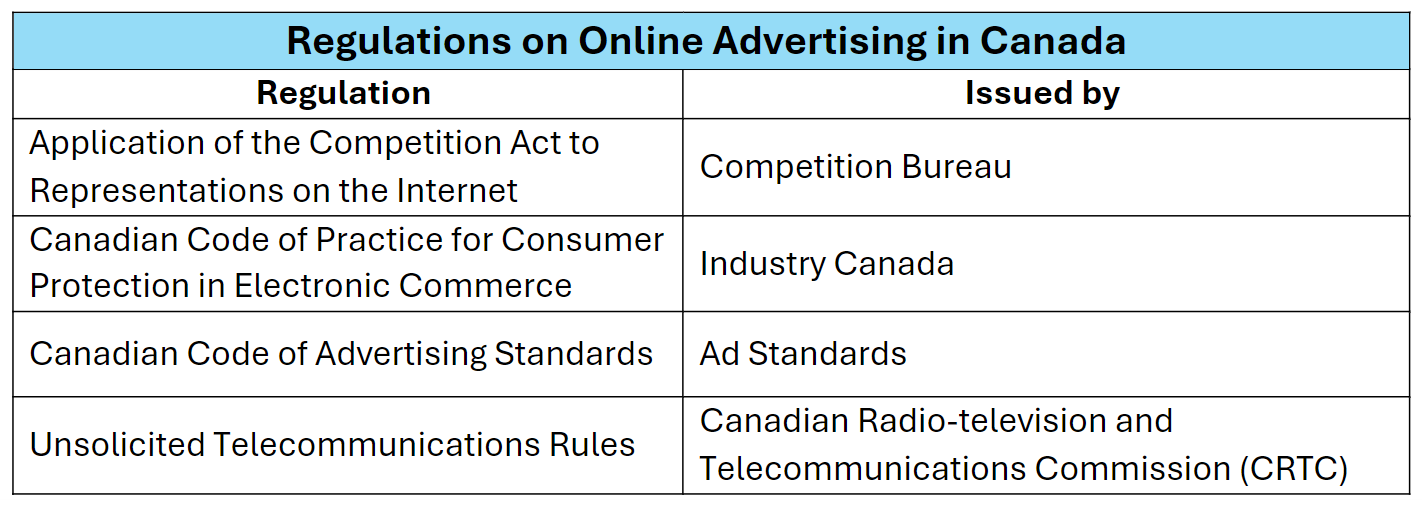As technology evolves, Canada’s online advertising laws have adapted to regulate internet ads and marketing. Businesses of all sizes must quickly familiarize themselves with these regulations. In this article, we’ll go over these advertising laws and how they apply to different online channels used to promote products and services.
What is online advertising law in Canada?
Generally, Canadian laws on online advertising are governed by federal statutes, in addition to the provincial and territorial laws. This means that advertising and marketing are a shared jurisdiction between the federal and provincial/territorial governments. This is why it’s important that you’re aware of not just your local laws, but also those whose effects are national in scope.
Here’s a summary of the advertising laws in Canada:

To know more about these laws, you can also consult the best advertising and marketing lawyers in Canada as ranked by Lexpert.
Regulators’ issuances on advertising
Advertising laws of Canada also cover the issuances made by regulatory bodies. These bodies can include government agencies (e.g., Competition Bureau) or independent industry regulators (e.g., Ad Standards).
Aside from the regulations that covers traditional and online advertising, here are some of the issuances that apply to online advertising in Canada:

What are the rules under Canada’s online advertising law?
You may notice that the Canadian statutes on marketing and advertising that apply to traditional media (print, TV, and radio) also apply to online marketing. There are some distinctions though, especially when new methods of advertising pop up every now and then.
Below are some of the important provisions of Canadian online advertising law:
- prohibition on misrepresentations
- regulation when sending email ads
- regulation of ads to children online
Here’s a video that shows an example of a deceptive online marketing strategy, and how the Competition Bureau regulates this practice:
If you’re looking for other laws not mentioned here, you can also check this Lexpert list of advertising laws.
Let’s look at some of the rules of online advertising laws:
Prohibition on misrepresentations
Prohibiting misrepresentations and deceptive marketing in whatever form — whether it be in traditional or online media — is at the heart of Canadian advertising laws. This includes false and misleading representations of the message of the ads, the packaging or labelling of the product, and when made by the people promoting these products or services.
There are many consequences when you’re held to be engaging in these illegal activities. This includes administrative sanctions imposed by regulatory bodies, and civil and/or criminal liabilities.
Covered by prohibition on online misrepresentations
When determining the liable party for online misrepresentations, the Competition Bureau will look at:
- the business or corporation
- web page designers
- web server operators
- service providers
Here, the Bureau will look at who is the ultimate cause of the misrepresentation. This can be any or a combination of these parties.
Marketing using online influencers
Influencer marketing has been on the rise and will not go anytime soon. Currently, Canada’s online advertising law has certain regulations when it comes to online advertising using influencers.
The Competition Bureau, in one of the guidance it issued, says that when influencers post reviews and opinions on social media, they must:
- disclose, as visibly as possible, any material connections they have with the business whose products or services they feature
- disclose any material connections in every social media post and must not be separated from the content it’s related to
- use clear and contextually appropriate words and images when promoting a business’ products or services
- avoid unclear references when talking about the business they’re promoting, or whose products or services they’re featuring
Additionally, the prohibition on false and misleading representations applies to influencers. It means that an influencer’s opinions made online must both be genuine and based on actual experience.
Regulation for emails and advertising
Email drips and SMS marketing campaigns are famous methods of advertising nowadays. However, these must be done according to what online advertising laws say.
Sending ads without the receiver’s consent
When sending out ads through any form of telecommunication, the CASL requires prior consent on the part of your ads’ recipients. Under this law, sending commercial electronic messages (CEMs) which are unsolicited or misleading is illegal.
This prohibition covers ads sent via:
- texts/SMS
- emails
- instant messaging accounts
- other forms of online messaging
In addition to the consent requirement by CASL, this law also requires that you follow the form required as to the ads to be sent. The message should:
- state the identities of the sender
- contain the sender’s contact information
- have an unsubscribe mechanism
- not contain any misleading representations and false information
Regulation of online ads that target children
There are separate regulations that you should consider if your online ads are directed at children. For instance, the Code of Practice for Consumer Protection in Electronic Commerce provides that communications with children must:
- use age-appropriate language
- not exploit a child’s credulity, lack of experience, or sense of loyalty
- not pressure a child to urge their parents or guardians to buy goods or services
- prevent transactions involving money with children
- not collect, use, or disclose a child’s personal information without the express consent of their parents or guardians
- not send marketing e-mail to children
These regulations are also consistent with the Competition Act and the Code released by Ad Standards.
Reach out to a lawyer in your area about provincial laws on advertising. Québecois businesses can reach out to the Lexpert-ranked best advertising and marketing lawyers in Québec to know more about online advertising laws in that province.
Read next: List of advertising laws in Canada
Related Articles:
What are Québec’s advertising laws?
What are Ontario’s advertising laws?





